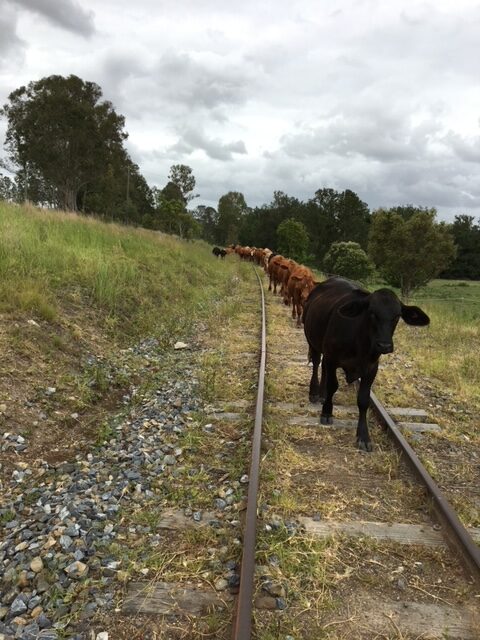I once asked a “chemical free” producer who was seeking a premium for a product why he didn’t take the logical next step and become Certified Organic. His answer- “I don’t want to be told what to do on my own farm”.
With the exception of our “Instagram Farmer” friends, most farmers just want to be farmers and be left to their own devices. But in this case I took exception due to the ‘chemical free” claims being made accompanied by this lack of accountability.
The reality is that as food producers, farmers cannot avoid accountability- we are producing the one thing that directly affects other people’s health three times a day- a big responsibility. “Conventional” farmers are usually in the commodity game and as price takers just do what has to be done to meet minimum industry standards. Their food claims are basic and they don’t get premiums. It’s what’s on special at the supermarket or in fast food or highly processed products.
Branded or direct supply producers are different- we have to “walk the talk” as that’s what customers who care expect.
Our local, grassfed K2 Organic Beef is promoted as “higher eating” because with its Organic Certification there isn’t just an ethical responsibility for us to provide food of the highest safety but also a legal responsibility. We are bound to a National Organic Standard* that transparently tells us and our customers what we can and cannot do in producing food without poison. A third-party auditing process that issues the Organic Certification shows we are meeting that Standard. You can search the Certification number under the Certifier’s logo on packets to verify compliance.
While the concept of “not wanting to be told what to do” seems logical: the reality is that marketing terms like “regenerative”, “ethical” or “chemical free” are open for interpretation. We trust a farmer with our health without the accountability of adherence to Standards. Not all farmers are claiming “chemical free” status, but all are still in the business of producing impeccably safe food (we hope).
A hard lesson in accountability and making assumptions on what consumers will consider “safe” or “ethical” was learned by Supermarket group Coles when a September 2022 Media Release resurfaced late last year announcing they had been adding Bovaer to rations as a trial in some “Carbon Neutral” branded feedlot beef. This triggered a consumer backlash against all Coles meat and milk products. It rolled on to other Supermarkets then to other suppliers like Butchers and Online platforms (except the Certified Organic ones who have a Standard to adhere to clearly preventing use of such additives).
The additive in question, designed to reduce methane emissions by burping cows, was made by DSM-Firmenich, a Swiss-Dutch Company funded in part by the Bill & Melinda Gates Foundation***. Bovaer has an active compound called 3-NOP. At high dose rates there is some data linking 3-NOP to reproductive organ damage+ which was enough to get the internet humming!
So while an assumption was made by Coles that the “Carbon Neutrality” of feedlot beef was a primary concern for consumers, and data (limited data it must be said) on feeding Bovaer to Dairy & Beef cattle showed it was a “safe” product; (even though a search of the APVMA labelling website still shows “No Results”); the reality was that consumers did care that an experimental product was being added to their food and they were prepared to shout their protests (loudly) on social media and cause financial pain to the culprit who was making a branding claim.
I wonder how many of those same conscious consumers are concerned about other synthetics being added to animal food such as Rumensin™ & Urea, or the myriad of anti-parasitics non-Organic animals are dosed with throughout their lives? Hormones are still widely used in feedlots and who has heard of glyphosate (used on almost all non-organic cropping farms with grain being fed to animals and direct to people)-coming under extreme scrutiny with thousands of law suits internationally? What about cumulative, forever-chemicals like Fluproponate or the deadly Paraquat banned in many countries and now prioritised for reconsideration by APVMA here – but still in use every day. Likewise Diazinon- banned by APVMA but still being used in both livestock and plant production farms until September 2025 – and the list goes on****. There are literally hundreds of additives and even GM products used in non-Certified Organic production systems consumers have no knowledge of!
The reality is, unless you are buying Certified Organic food you are allowing other people to make a determination on what they think is OK for you to eat. Are all those people biochemists? Mostly not. Do they rely on “industry information” on what is safe and what is not? Yes of course. But if nothing else, the Bovaer example has shown that as customer knowledge and power increases, there is a growing gap between what some decision makers in the food production industry see as “safe” and what customers are prepared to feed themselves and their children.
In 2025, Kandanga Farm Store is hosting one of the International Superstars of safe food production- Dan Kittredge of the Bionutrient Food Association (US). For the first time, Dan is running his 4-day course in Australia. In April & September, you can learn how to grow, eat and live better and see how Nutrient Density Measurement will disrupt some of the world’s biggest industries.
These events, and numerous others for food producers and consumers are listed at www.kandangafarmstore.com.au so get involved in the movement to a safer, more accountable food system. In the meantime, if you want to buy better than “conventional” food for your family, just eat Certified Organic (or grow your own), and stop letting others decide what’s good for you.
*https://www.agriculture.gov.au/sites/default/files/documents/national-standard-edition.pdf
***https://annualreport.dsm-firmenich.com/2023/business/health-nutrition-care/partnerships.html
+https://efsa.onlinelibrary.wiley.com/doi/10.2903/j.efsa.2021.6905
****https://www.apvma.gov.au/regulation/chemical-review/listing-chemical-reviews/chemicals-prioritised-reconsideration
Article by Tim Scott – first published in Gympie Living Magazine
